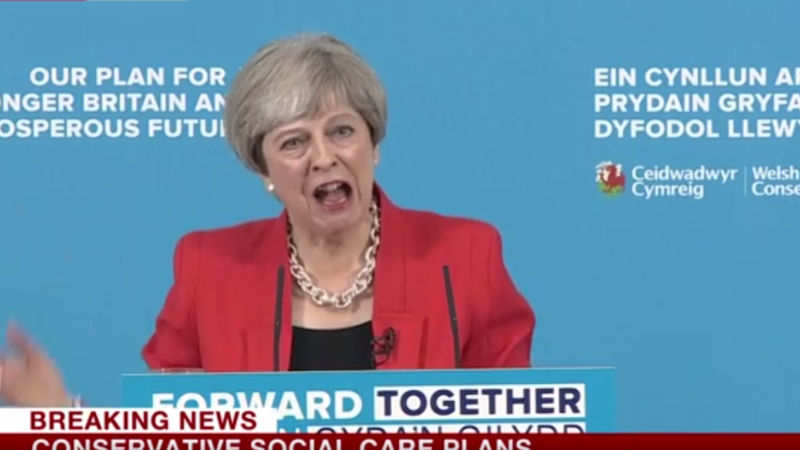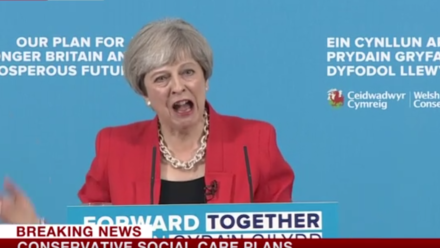

The Conservative Party is the most efficient political machine in the Western world. It has delivered Downing Street in seven of the past 10 elections. It did it it four times in a row in the 80s and 90s, through years of sky high interest rates and catastrophic unemployment in many areas. It’s done it three times in a row this decade as real wages have stagnated and every single net job created has been either zero hours or self employed.
Labour has to take some responsibility for that record too. There have been times where we have strayed too far from the country’s mainstream.
But the Conservatives have always understood and cultivated a powerful aspect of their political brand, that they can – when the chips are down – be trusted. They are competent to govern, and we are not, it is said.
That central insight is at the heart of every “Labour isn’t Working” poster and every accusation that we didn’t fix the roof while the sun was shining. It works most powerfully when the public feel uncertain or fearful.
The British don’t traditionally vote for change when times are tough – they vote for authority and stability. It has also made the Conservatives the default option when the electorate have no clear view on what form of government they want to appoint. Take 1987 and 2010. Hardship – once on their watch, once on ours – saw the country turn to the money managers they trusted. Equally in 1992 and 2015 people had a far less certain sense of the right course of action, so they defaulted to the Conservatives again.
It is no coincidence that in the late 90s and early 2000s Labour won three straight elections at a time when our competence ratings were higher than the Conservatives.
Which is why it is remarkable to see the Conservatives taking such a single minded mallet to their own brand. Like a Samsung phone exploding in people’s pockets, the past five years have dealt tremendous violence to the Tory reputation for quality.
The Brexit referendum was an exercise in party management from a prime minister with a weakness for short term tactical decision making. Regardless of one’s views of Brexit as a concept, David Cameron himself certainly believed it would be enormously damaging. But he gambled the future of the country to protect his party.
He led a tone deaf and half-hearted campaign to remain, fearful of upsetting his own problem wing, and then whistled off into the sunset.
His replacement, Theresa May, promptly sacked anyone who had looked at her funny in cabinet and took time to offend them on their way out. Now, anyone who has read Machiavelli or seen Suits knows that if you are going to humiliate someone it is best to make sure they can never come back. But instead she found that soon the editor of the Evening Standard and the chair of the Treasury Select Committee were people who she’d made special efforts to treat with contempt.
She appointed Boris Johnson as foreign secretary, to the astonishment of our allies. Inevitably she has been repaid with the sort of disloyalty one would expect to see from a pole cat.
She then called an election during article 50 claiming she needed the mandate, and lost 33 sitting MPs. Perhaps we should pause to luxuriate in the fact that her now former chief of staff Nick Timothy has an article in the Daily Telegraph entitle Ways to Win. It doesn’t appear to be ironic.
Now she is trapped. Strapped to the hull by Cabinet colleagues who have come to terms with the fact that Brexit is going to be a failure but are absolutely damned if they are going to risk any blame.
If we were mischievous we could tack the Scottish referendum onto the front of this list too.
Indyref, Brexit, election, leadership manoeuvring. It is hardly a surprise that both the public and the financial markets are losing their confidence in the government. The number of people who see May as incompetent has risen by a third since the summer. Equally importantly, the sharp rise of Jeremy Corbyn’s numbers during the election did very little to move the price of sterling or the major volatility indices. Investors just don’t see a Conservative government as inherently safer than a Labour one, regardless of our leadership.
This is a vast problem for the Conservatives and a huge advantage for Labour. There is a mood of change sweeping the developed economies. Parties who are offering a break from the political class are surging in the polls. Some of those parties may appeal to our instincts on the left and find some others rather repulsive, but there is a clear, iconoclastic line to be drawn through Trump, the AFD, Front National, Syriza, today’s Labour Party and others. Even Macron won the French presidency and parliamentary elections with a party which didn’t even exist 18 months ago. He won as a moderate, but he ran as a change candidate too.
Competence can still be a partial defence for establishment parties against this tide. Angela Merkel lost significant ground in September’s election to anti-establishment politics. Nevertheless she remains chancellor and was able to make significant capital from an iron reputation reflected in consistently higher competence ratings.
The implications for domestic British politics are clear. The Conservative Party have abandoned any pretence that they act in the best interests of the country. They are visibly fighting only to stay in office and to advance their future cabinet careers. That removes from the strategic map a key line of defence for the government. In doing so, it creates an offensive opportunity for Labour to recast ourselves as competent managers of three things.
First, the economy. There is dispute in the party at the moment about the role of the state in markets and the proper level of taxation to pay for our wider platform. However, wherever the balance falls, certainty, calmness and an evidence base are important for both investors and the public to have confidence that they understand our economic position and can make a rounded decision about it. Frankly we cannot be elected if people feel we would be emotional, factional or unpredictable managers of the economy. History is quite clear on this point.
Second, the public sector. The public absolutely believe that Labour care most about our public services. It is often less certain that they trust us to manage them. During the last parliament we were even overtaken on being trusted to run the NHS. It isn’t enough to be seen to care, we have to be seen to be capable.
Third, Brexit. This is the defining public policy challenge of our generation. It is complex in a way unparalleled in British legislative history. Businesses and much of the public are genuinely terrified by the Conservative approach to the negotiations. It isn’t just that the government appears set on a hard Brexit, so much as they seem to have arrived at that outcome by mistake. They don’t know what they want, and often seem not to even understand the question. We can stake a technically proficient, pro-access path and in doing so win popular endorsement as sound managers of difficult projects.
There is an emotional appeal to the idea that Conservatives are competent. It’s something to do with the fact they remind us of management in many people’s work lives. Cabinet members look like nothing so much as the dreaded visitor from head office.
But they have set fire to that reputation with half a decade of crass party self interest. Labour can take advantage, if we choose to.
Allen Simpson was Labour’s candidate in Maidstone and the Weald at the last two general elections.




More from LabourList
‘Unity or division’: Starmer’s message to voters in Gorton and Denton
Almost half of Labour members oppose plans to restrict jury trials, poll finds
‘How Labour can finally fix Britain’s 5G problem’